Palestinian diaspora: The female custodians of an ancient culture
Resisting the erasure of an identity that dates to pre-biblical times, diaspora Palestinians focus on what lies beyond the painful headlines – the Palestinian culture.
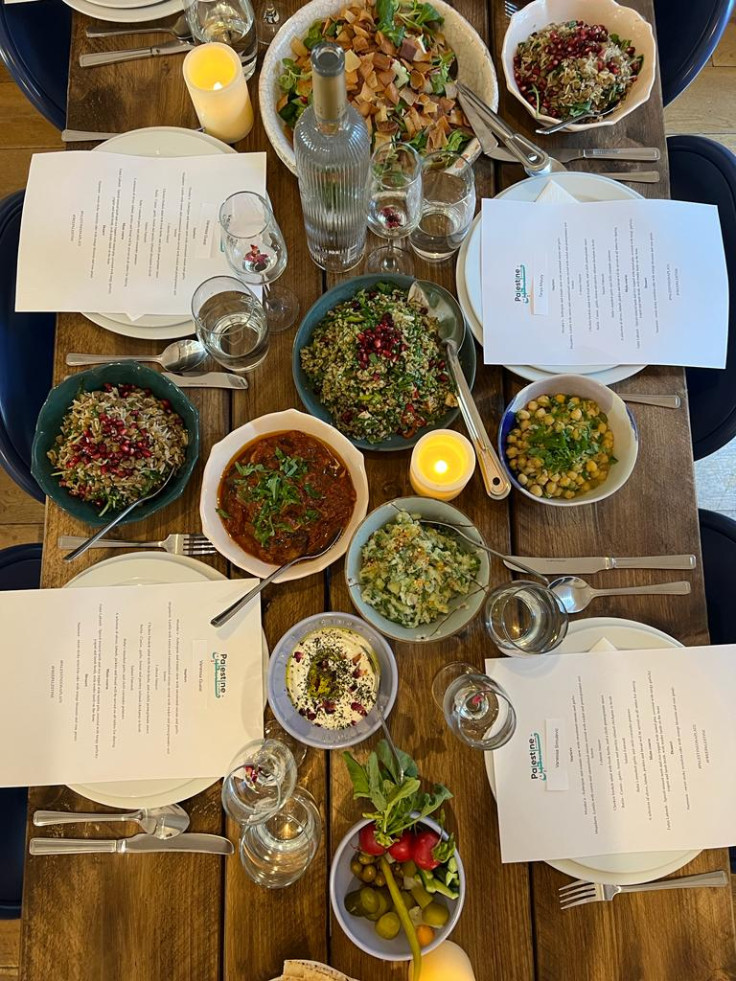
As I was scrolling on Instagram in a late afternoon bout of procrastination, Palestine on a Plate's story popped up.
She spoke in her soothing voice, feminine with just an inflexion of baritone giving it gravitas. She said: "These are the best kind of deliveries... look at this amazing olive oil from Zaytoun... made in Palestine."
Yes, even delivery announcements have weight to them when uttered by Palestinian-British chef Joudie Kalla, known on social media as Palestine on a Plate.
"Zaytoun" is Arabic for olive. In 2005, there was a global outcry (with little action to follow it up, as usual) when the AFP published a heart-wrenching photo of Mahfoza Oude, a 60-year-old Palestinian woman, hugging the trunk of a mutilated olive tree after Israeli settlers had attacked and destroyed much of her family's olive grove.
Several such instances have been recorded before and since. In the fall of 2003, The Guardian reported that armed Jewish settlers from Eli attacked Palestinian orchards in Sawiyah, south of Nablus, and destroyed a thousand olive trees - some dating back to Roman times.
The olive not only has an ancient progeny entwining it with the land and people but is also a major agricultural crop in present-day Palestine. This makes it just one of many culinary fault lines in the larger struggle of people who find themselves dispossessed in their own ancestral land. It is represented even in the Palestinian Keffiyeh scarf, as a symbol of resilience and perseverance.
It is an expression of identity; In the Palestinian nationalist poet, Mahmoud Darwish's words, simply a way of saying "I come from there" – the title of Darwish's poem, in which a Palestinian exile compares his banishment to being in a prison:
I come from there and I have memories
Born as mortals are, I have a mother
And a house with many windows,
I have brothers, friends,
And a prison cell with a cold window.
Amongst the man's memories is "the immortal olive tree". In this, he is not so different from modern-day Palestinians in the diaspora, who celebrate the food of their homeland as they fight to keep the flag of their identity fluttering high.
Taking in the stories of a number of Palestinians, I realised food is but one aspect of the culture that is being kept alive in the diaspora.
Through my conversations, I found Palestine represented in painting, jewellery and music, including the music of contemporary artists.
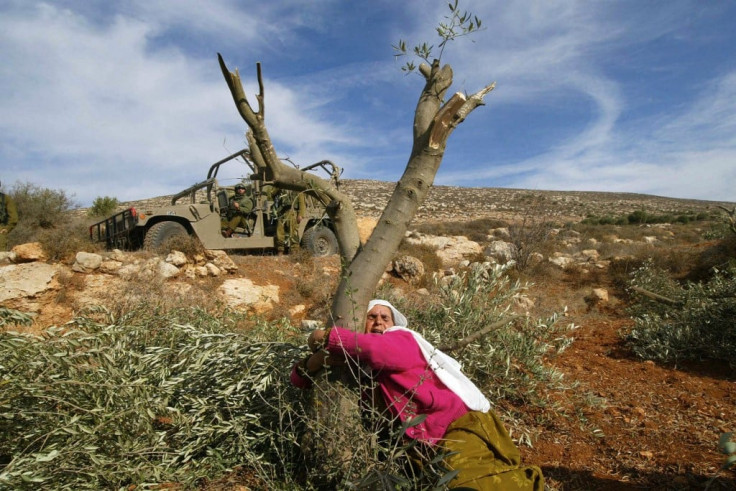
"Palestinian Generosity"
On a sunny June afternoon in London, I made my way to a supper club hosted by Kalla. She is an award-winning cookbook author and chef, who cut her culinary teeth in a succession of esteemed London establishments, including under famed chef David Duverger.
The evening opened with a glass of bubbly flavoured with a hint of rose. As someone who normally runs away from rose-infused food, I was in for a surprise - there was just a floral hint, lifting up the whole thing, making it fit for a summer evening - no trace of the medicinal soapiness I associated with heavy-handed rose preparations I sometimes came across growing up in Pakistan.
As the sun filtered in through the glass roof in Kalla's dining room, there was an elevated sense of occasion to the whole thing – it was the first supper club to be hosted at her new home.
The table was set with generous helpings of various starters, in the shadow of an arresting painting of a young Palestinian woman – christened Sabra; more on her later.
One of the participants, perhaps unsurprisingly, ran a food-focused Instagram account dedicated to the Palestinian recipes she cooks. She calls herself "Teta" ("grandmother" in Arabic) on her social media.
Teta observed: "You can see Palestinian generosity on display - in some supper clubs, you're scraping the bottom of the dish."
The offending supper clubs remained unnamed as we descended en masse upon the Levantine bounty before us. There were seven starters in all, accompanied by bread and sundries.
As a Pakistani, even as a trained chef I confess, I sometimes struggle to conceive of a dish as having sufficient flavour without, well, having sufficient chilli in the mix!
Cue a revelatory experience. Kalla's take on Palestinian food was bursting with a variety of flavours, very few of them leaning on chilli.
Mujadarra – lentils with rocket and pomegranate, fresh and moreish at the same time.
Chicken Freekeh salad – satisfying grains elevated with herbs and a chilli pomegranate dressing.
Balila – chickpeas with the heady earthiness of cumin tempered by the zing of lemon.
And let's not forget Kalla's take on Sallatet Fattoush.
My favourite – the Musaka'a, aubergine and tomato stew. I was single-handedly responsible for polishing off much of it.
Not to overplay the biblical analogy, but it is something of a testament to just how giving ingredients are in Kalla's hands that the copious amounts of carbs on the table were largely ignored by yours truly in favour of all of the above – there were potatoes, bread and cheese fatayer pastries, all lovely in their own right, but overshadowed by the rest.
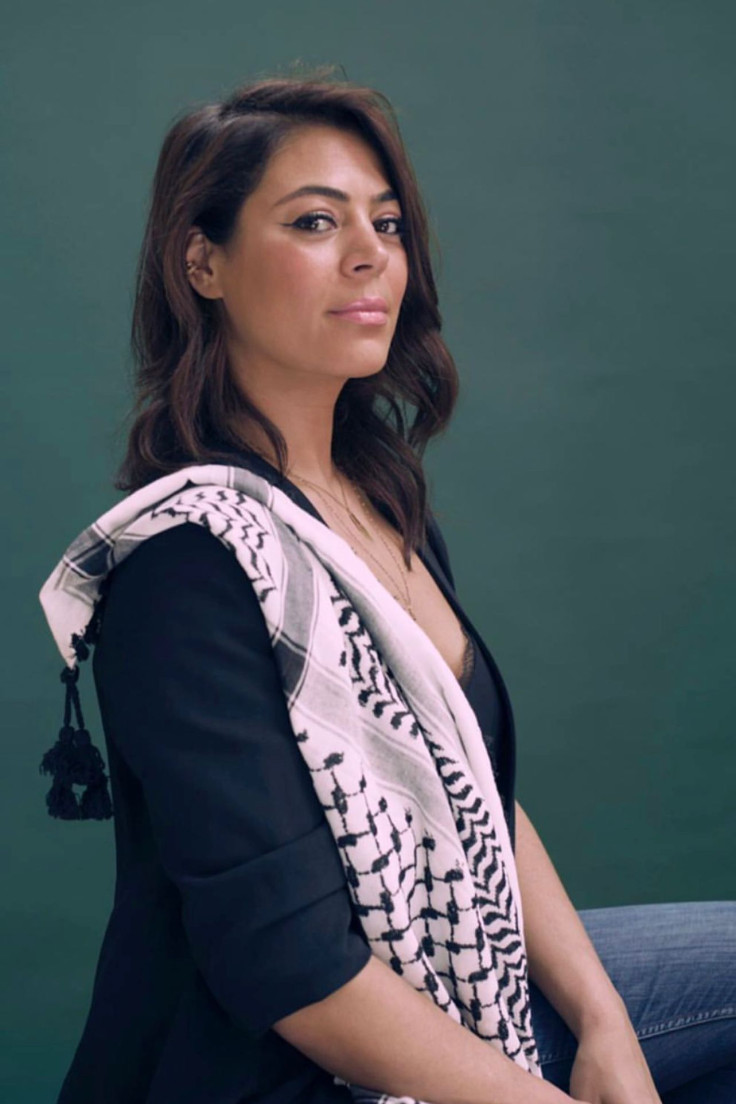
Nazareth Calling
With the group split into two tables, I found myself seated with a largely Palestinian contingent.
It meant I was largely in observation mode as their stories unfolded. It was a lively, worldly, well-travelled group. They were cheerful and as much consumed by the everyday drama of life - one of the participants was on the phone making sure her daughter had made it back home from swim lessons - as anyone else.
Yet they were also acutely aware of their Palestinian identities. They were proud of them, they felt a responsibility to proclaim them, they carried within them the wounds of the past and the present; but most of all, they wanted to celebrate the meaning of being Palestinian beyond the painful headlines.
Teta's husband, who I will call Jiddo ("grandfather" in Arabic), started to ask them about their heritage - a natural thing, I came to understand, for people always yearning for a homeland which they are not able to enter due to the Israeli authorities' violation of an internationally recognised right of return - of all peoples, not just Palestinians, to their respective countries of origin.
In a serendipitous turn of events, nearly all of them traced their lineage back to "Naasira". Most people know it better as the hometown of one Jesus of Nazareth.
The subject of the "Nakba", the expulsion of 700,000 Palestinians at the creation of the State of Israel in 1948, naturally came up.
"My grandfather owned a bus company in Naasira in 48'," Teta recalled. "He evacuated people across the border to Syria."
Teta grew up in Syria. Our host, Joudie Kalla, also had a deep connection through the family to Syria.
Kalla told me: "Both my parents were refugees. They were born in Palestine and taken to Syria as babies when their families fled in 1948."
Eventually, her parents settled in London; but they maintained links with their families in Syria.
Kalla's childhood summers were spent with her grandparents, aunts, uncles and cousins in Damascus.
Passing the torch of an ancient culture: A Matriarchal Endowment
Kalla recalls her visits to Syria fondly.
"I spent a lot of time with my grandmother and aunties in the markets and in the kitchen, cooking dish after dish. Being around women who love to cook (and talk!) has been one of my most precious memories growing up."
When I referenced Kalla's prestigious formal training, she said: "To be honest, most of the things I learnt, I learnt from my mum. You can't really teach people how to cook if they don't want to do it and they don't love it."
Another Palestinian who is preserving the cultural inheritance passed down from female forebears is Zeina Khaznachi. She recently started a business designing and making jewellery inspired by Palestinian cross-stitch.
As the name suggests, you would traditionally find cross-stitch on items of clothing, like the Palestinian thobe, a traditional robe – and household upholstery. Khaznachi had the idea of using these patterns on items of jewellery such as bracelets, chokers, earrings - and most recently, an Apple Watch for a male customer, in a sign of an expanding clientele base.
To be exact, Khaznachi is Iraqi-Palestinian - her mother's family hails from the latter, the ancient land previously known as "Canaan" before it came to be known by its current moniker.
Responsible for this shift is none other than the father of history - Herodotus. In the 5th century BC, he notes in his Histories, a "district of Syria, called Palaistinê" between Phoenicia and Egypt. Thereafter, Greek, Roman, Byzantine, Ummayad and Abbasid texts use this name.
Khaznachi pays homage to this rich history, stretching back to pre-biblical times. The name of her jewellery label is "Asherah". Asherah was a Canaanite goddess of fertility, also referenced in Judaic texts, most notably Deuteronomy.
Khaznachi reflects on the name, saying: "Asherah encapsulates femininity and nurturing. I wanted a name that paid homage to the women who kept these crafts alive. Some say Tatreez can be traced back to our Canaanite ancestors. This narrative, combining the ancient art of weaving with female empowerment, captivated me."
She goes on to express what Tatreez means in the context of Palestinian culture.
"My mother and grandmother taught me to cross-stitch. There are numerous cross-stitch patterns from different areas of Palestine, holding different meanings. Those patterns are our history, our voice, the voice of our ancestors – passed down through the female lineage – mother to daughter."
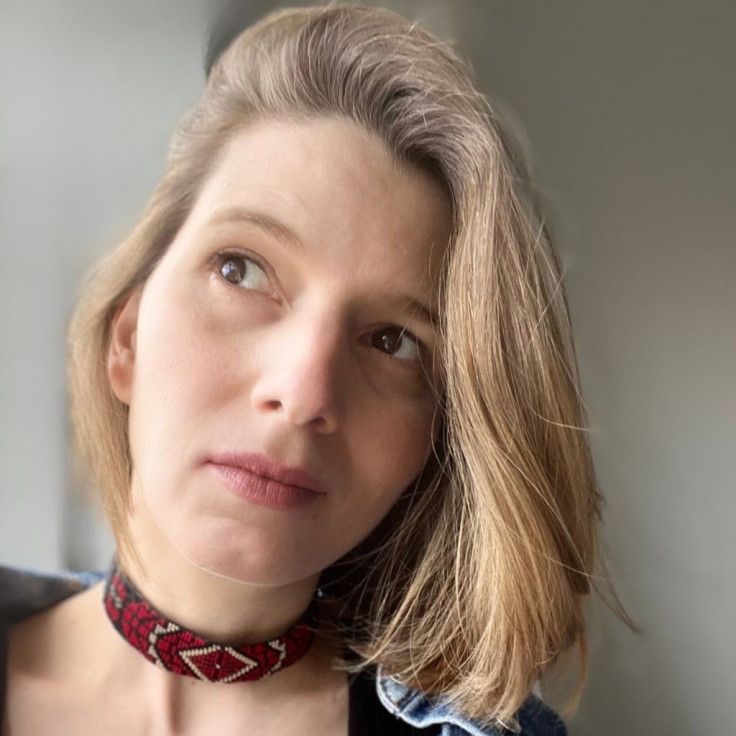
Generational Trauma
There is one common theme across the different trajectories of Khaznachi and Kalla's stories. That is one of an uprooting in time and space.
Although Kalla recalls a wonderful childhood, the passing of years brought with it a realisation. Kalla's family, including her parents and grandparents, carried with them the trauma of the Nakba. They tried to shield their children – Kalla, her siblings and her cousins – from that pain.
Yet the wound of the Nakba has reverberated across the generations, manifesting in different ways as a feeling of exile lingers – from the now elderly generation who were expelled from their homes in Palestine to those who were born in refugee camps in other countries, and finally, to those who were born in more secure circumstances but have always heard of a homeland to which they cannot return.
Palestinians say the Nakba is ongoing. It is hard to argue with them as news filters through of Israel's attack on Jenin, the deadliest in decades.
Unexpectedly, the parameters of our conversations grew to encompass the wider fault lines of the modern Middle East. Though perhaps that was the lesson - the crux of the Palestinian experience since 1948 is displacement in various layers.
Decades after making a home in Damascus, the pain of war came for Kalla's family once more.
This time it was the Syrian Civil War in the aftermath of the Arab Spring.
"My family became refugees again and fled to Jordan.
"What happened in Syria was a crime - it was a beautiful country. The generational trauma of having to leave - it doesn't end because someone just ran away - through their food or cooking or stories is how people hold on - none of these recipes mean anything without the stories. It was a cherished part of life for them."
Much of today's Palestinian diaspora traces its roots to the exodus that took place in the aftermath of the creation of Israel in 1948 and then again after the 1967 Arab-Israeli War.
Khaznachi's story is intertwined not only with the events of 1948 but also with that second great expulsion experienced by Palestinians – after 1967. Her mother's family were from Ramleh and moved to Ramallah in the aftermath of 1948.
"My mother was three years old when the Nakba started – and it continues to this day. Her family was witness to the Nakba orchestrated by Rabin," she says, referencing Yitzakh Rabin's position as Chief of General Staff of the IDF in 1948.
After 1967, they were forced to leave entirely, settling in Jordan.
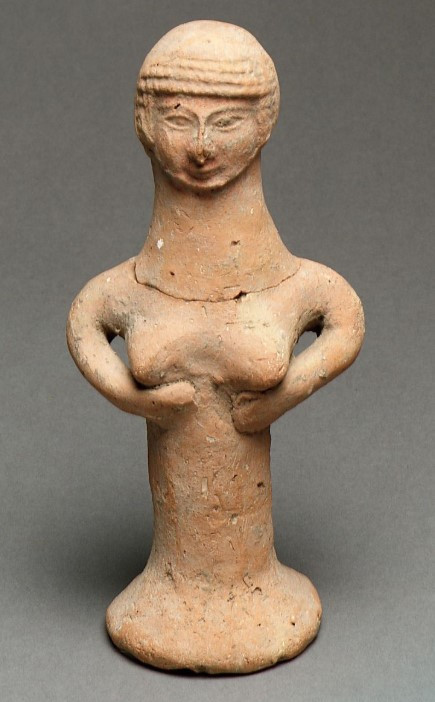
Personal Favourites
Towards the end of our conversation, I asked Khaznachi what her favourite pattern of Tatreez is so far. She answered without pausing, she said: "The Syrian Inhabited Scroll."
She explained that Tatreez patterns can be both geometric and botanical. The Syrian Inhabited Scroll is a symphony of eight different patterns, which is what she finds so fascinating about it.
Naturally, I couldn't let my subjects go without inquiring about food memories. Khaznachi's favourite Palestinian food is "Akoub".
"It's the most sadistic thing in the world," she said, laughing. "But yummy! You prepare it by painstakingly removing the thorns of the plant, prepare the stems with lemon and fry immediately – otherwise, there's a risk the thorns will grow back.
"My grandmother's hands would be black as soot preparing it. I have to say I will only eat it as long as my mother or grandmother are around – preparing it is an arduous task!"
Akoub is a thistle, still only found in the wild. In yet another frontline pitting Palestinians against the Israeli state, Akoub has been declared a protected species by the Israeli government. Picking it, even in the West Bank – which Palestinians have done for generations for personal consumption and commerce - is now banned.
Like so many things in this land, Akoub has an ancient pedigree - some say Jesus' crown of thorns was made using Akoub.
When I posed Kalla the same question – a favourite recipe – she cited Sfiha Yaffawiyeh. Sfiha Yaffawiyeh is a meat-filled pastry encased in fine, crunchy homemade filo.
"My grandmother was very famous for making these in Yaffa in Palestine - people would come over just to taste it," Kalla said.
She further explained how female cooks would prepare the pastries and take them en masse to the nearest commercial baker to cook, as they didn't have ovens at home.
"In Syria, we all used to make them together as it's a bit of a laborious process," she went on. "We always have some in the freezer. And my mum remembers her mother every time she makes them. I am going to make some today for my mum – because I ate the last batch I made before giving her any!"
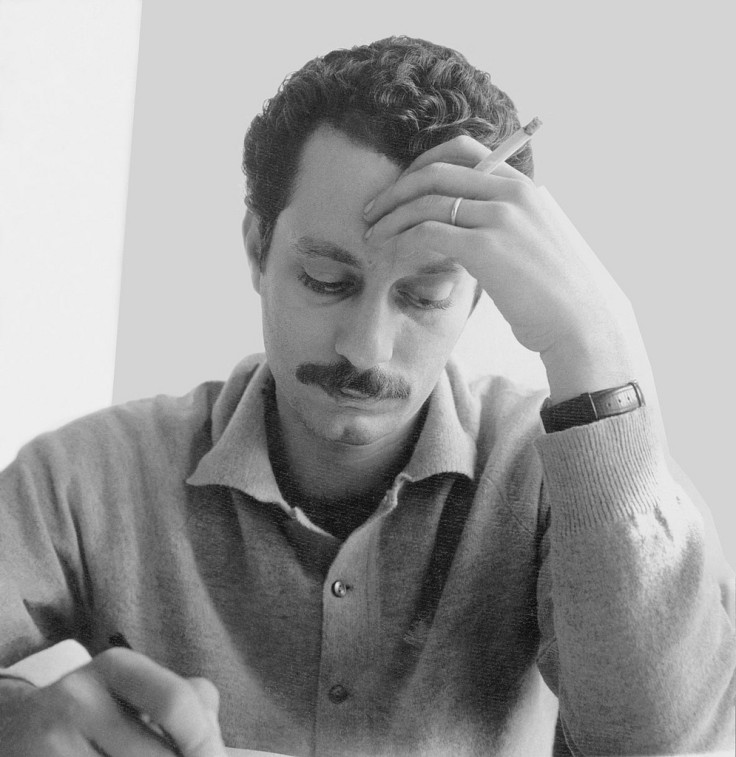
'We've done nothing but be indigenous to the land"
Through her cookbooks, Kalla has endeavoured not only to share recipes but the stories behind them.
"It makes me proud that I was able to immortalise these women through what I do," she said, referring to her cookbooks.
Proceeds from both her cookbooks, "Baladi" and "Palestine on a Plate" go to charity, including The House of Friendship in Nablus. The House of Friendship is a charity organisation that hosts several children's activities and summer camps, as well as other charitable endeavours such as clothing and food donations.
Kalla describes the censorship that she has faced when talking about the situation in Palestine – or even in just expressing her Palestinian identity through her published works.
She was blocked on social media for a long period of time for posting an interview by an Australian radio station of the late Palestinian revolutionary author Ghassan Kanafani.
By contrast, Palestinian identity is erased online indirectly and directly with impunity. A recent controversy involved an influencer advertising "Israeli Mejdool dates". Social media users swiftly pointed out that not only is "Mejdool" an Arabic word, hinting at the provenance of the dates but that 60 per cent of Israeli dates are produced on illegal settlements.
As the supper club came to a close, I took another look at the painting: Sabra.
Sabra has large, almond-shaped eyes set in a heart-shaped face – yes, she's pretty, but with a slightly overhanging upper lip, looks real nonetheless. She wears a bright blue Thobe.
And yes – the Thobe is superimposed in pale yellow with one of the Tatreez patterns Zeina Khaznachi mentioned to me.
"You know this painter?" I asked Kalla, having come across the artwork on social media.
She smiled and said: "It's me! I make the paintings."
With slight abashment, I realise that "Kalla Art" uses Joudie's surname.
"The silencing of Palestinians has no equal in contemporary society as far as I have seen," she told me as we parted. "We've done nothing but be indigenous to the land."
I cannot think of better ambassadors for this ancient land than the brave, talented women who make the meaning of Palestine come alive in such beautiful ways in a world that has turned what should be some simple words of identification into a searing revolutionary message: "I come from there."
© Copyright IBTimes 2025. All rights reserved.






















